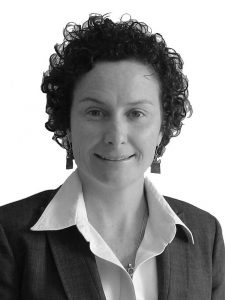This is the chapter 12 out of 19 chapters of our Cambodia Investment Guide. Learn the best way to invest in Cambodia. Download the full publication here.
![]()
Chapter 12.2 to 12.5: Natural Resources and the Environment
The regulatory framework for the use and protection of Cambodia’s vast natural resources has grown considerably in recent years. This framework is expected to continue to expand in the future as this sector receives financial support from external aid. This section outlines the regulatory regime currently in place. Keep in mind that because of the technical and complex nature of regulations in this area, implementation and enforcement can be inconsistent.
2. Mining
The regulatory framework for the use and protection of Cambodia’s vast natural resources has grown considerably in recent years. This framework is expected to continue to expand in the future as this sector receives financial support from external aid. This section outlines the regulatory regime currently in place. Keep in mind that because of the technical and complex nature of regulations in this area, implementation and enforcement can be inconsistent.
- An artisanal mining license will be issued only to Cambodians to explore for and exploit mineral resources by using locally available hand tools and by working alone or with family members in a group not exceeding seven persons;
- A pits and quarries mining license will be issued to a qualified natural person or legal entity to explore for and exploit construction materials, industrials and industrial minerals, quarried from pits and used in the construction, chemical and processing industries;
- A gem mining license will be issued to a qualified natural person or legal entity to explore for and exploit precious, semi-precious and ornamental stones;
- A mineral (gemstone) cutting license will be issued to a qualified natural person or legal entity to cut precious, semi-precious and ornamental stones;
- A mineral exploration license will be issued to a qualified natural person or a legal entity to explore for mineral resources; and
- An industrial mining license will be issued only to a concessionaire holding a mineral exploration license to explore for and exploit mineral resources found in commercial deposits located within the boundaries of the area of land granted under the mineral exploration licenses.
Mining/mining licenses are primarily under the authority of the MME. It should be noted that a mineral exploitation proposal except proposals related to decorative stones and construction stones and materials, must be submitted to the one-stop service of the Council for the Development of Cambodia (“CDC”). The CDC will issue approval after the preliminary study and exploration stages subject to the MME’s discretion. The CDC’s in-principle approval must be obtained before the MME issues an industrial mining license.
The mineral sector is managed specifically by the General Department of Mines Resource of the MME (“GDMR”). The GDMR has two principal roles, one being the promotion of mineral resource development and the other, the regulation and supervision of mineral resources development.
The MME may require the applicant to enter into a mining agreement if it deems the mining exploration license or mining exploitation proposals to be sufficiently large and of special benefit to the country.
In May 2016, the Cambodian government issued a ministerial ordinance in a form of Sub-Decree 72 (“Sub-Decree 72”) to manage mineral resource exploration licenses and industrial mining licenses. Sub-Decree 72 provides for procedures, processes and conditions related to the issuance of exploration licenses and industrial mining licenses. Rights and obligations of licensees are now regulated by Sub-Decree 72.
Under Sub-Decree 72, an exploration license is valid for three years and may be renewed for another two terms provided that each such term does not exceed two years. Similarly, the validity of an industrial mining license cannot exceed 21 years and may be renewed for another two terms provided that each term does not exceed 10 years. In exceptional circumstances, an industrial mining license may be renewed more than the terms specified above, although Sub-Decree 72 is silent as to what constitutes exceptional circumstances permitting such a renewal.
Licensees must be aware that they have reporting obligations to the MME. A licensee holding an exploration license must report to the MME on an annual basis about the results and associated expenses related to mineral resources exploration for each year before the end of the first month of the next calendar year or within 30 days following the date of exploration license expiry. Similarly, a licensee holding an industrial mining license must file a monthly production and sale report to the MME in a form as determined by the MME within 15 days of the following calendar month. Failure to comply with reporting obligations may result in license revocation.
The Cambodian government encourages and promotes investment in the mining sector and grants customs duties exemptions for the exploration of gas, oil and all kinds of mining as well as supply bases for gas and oil activities.
It should be noted that all mineral resources are reserved for local supply. The export of raw mineral resources is prohibited under Cambodian law.
3. Available Concessions for Mining
There are two ways to source an available and potential mining concession in Cambodia:
- through a joint venture or contractual arrangement with the existing mining concessionaire; or
- through direct contact with the GDMR. Geology and mineral data are necessary to assess the recoverability of available mineral resources; however, the GDMR has limited geology and mineral data. Currently, the GDMR has only fourteen sheets of 1:200,000 geological maps that cover Cambodia.
4. Water Resources
The Ministry of Water Resources and Meteorology (“MOWRM”) was established in 1999 with governing powers over Cambodia’s vast water resources. The MOWRM is responsible for developing and managing water resources in Cambodia. Additionally, the Ministry of Rural Development (“MRD”) is specifically responsible for rural water supply sanitation. The MME is also in charge of water supply for provincial capitals and medium-sized and small towns as well as for the regulation of the private sector involved in piped water systems.
The MOWRM has the duty of managing and developing Cambodia’s aquatic resources for use by business, agriculture and inhabitants as well as for recreational and environmental purposes. The MOWRM also oversees irrigation and flood control development.
The Law on Water Resource Management was enacted on 29 June 2007 to determine the rights and obligations of water users, set the main principles for water management and outline the participation of community of farmers using water in the development of water resources.
According to the Law on Water Resource Management, licensing or authorization is required for the use, consumption or diversion of water for industrial or agricultural purposes beyond basic needs such as drinking, laundering, bathing, raising animals and watering gardens and crops. The water works constructions related to the aforementioned activities also require licensing or authorization from the MOWRM.
The MOWRM’s license or approval is also required for the following activities;
- extracting sand, soil, stone, gravel, oil and gas from seas, rivers, canals, channels, ditches, lakes and ponds;
- filling of rivers, canals, channels, ditches, lakes and natural reservoirs;
- emitting, stowing or storing poisonous substances that can affect water quality or cause danger to human beings, animals and plants; and
- constructing bridges over rivers or constructing ports or buildings on the shore or on beaches.
Companies or individuals that discover underground water sources or underground water wells in the course of their mineral exploration and other activities have the obligation under the Law on Water Resource Management to inform the MOWRM about such discoveries.
5. Environmental Protection
We understand that the Cambodian Government aims to prepare an Environmental Code although it may take years to achieve such a feat. Currently, environmental matters are governed by the Law on Environmental Protection and Resource Management, enacted to protect and restore Cambodia’s natural environment and to ensure the conservation, development, management and sustainable use of natural resources.
The Law on Environmental Protection and Resource Management empowers the Ministry of Environment (MOE) to inspect any premises or any means of transport if the MOE considers that it affects the environment. To ensure the sustainability of natural resources, the Law on Environmental Protection and Resource Management requires all ministries to consult with the MOE before issuing decisions or undertaking activities related to the protection, the development or the management of the use of natural resources.
The Law on Environmental Protection and Resource Management is supported by various governmental regulations including, inter alia, the Sub-Decree on Environmental Impact Assessment, the Sub-Decree on Water Pollution Control, the Sub-Decree on Solid Waste Management and the Sub-Decree on Control of Air and Noise Pollution.
Chapter 13 : Contract Law and Enforcement
You can download the complete guide for free here.
The post Chapter 12: Natural Resources and the Environment appeared first on DFDL.

 DFDL is pleased to announce that
DFDL is pleased to announce that 









 Kristy Newby
Kristy Newby Rutherford Hubbard
Rutherford Hubbard









